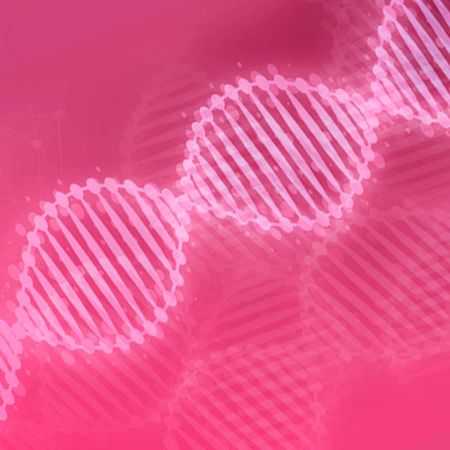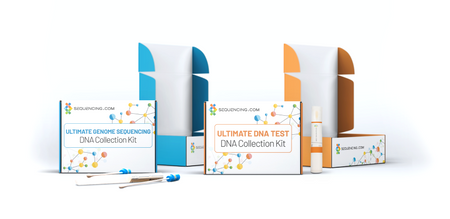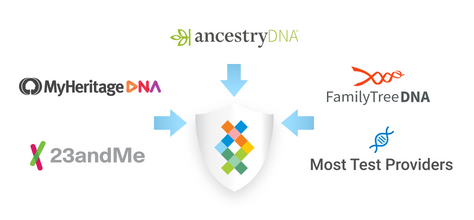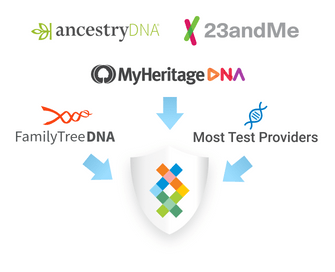What’s New with Breast Cancer Genetic Testing
One in eight women will be diagnosed with breast cancer. Genetic counselors have embraced this statistic and encourage women AND men to seek genetic testing to assess their risk. Many people do not know taking a genetic test can deliver this type of information and the knowledge of it can save someone’s life.

One in eight women will be diagnosed with breast cancer. Genetic counselors have embraced this statistic and encourage women AND men to seek genetic testing to assess their risk. Many people do not know taking a genetic test can deliver this type of information and the knowledge of it can save someone’s life.
Genetic Testing for BRCA1 and BRCA2 Gene
BRCA1 and BRCA2 genes increase the risk of breast cancer greatly. Genetic test results showing these gene mutations can set people on the road to prevention vs. mammograms that position people on the road to recovery. A BRCA mutation is a powerful signal that breast cancer will likely occur, so seeking genetic testing and genetic counseling is a good idea to identify whether someone is high-risk.
Who Can Have Breast Cancer Genetic Testing
ANYONE can have their DNA tested for cancer risk, including ovarian cancer. This includes those with family members that suffered from breast cancer AND those that do not. It also includes people from all backgrounds, not just from Ashkenazi Jewish or Eastern European descent.
When Should People Get Cancer Screening
People should get cancer screening as soon as they are born. The breast cancer gene and other genes such as for pancreatic cancer can be present at birth, and knowing this information can decrease the risk of it. Many people who have discovered they have the BRCA gene have elected to have preventive surgery such as a mastectomy to eliminate the risk.
Detecting breast cancer during its early stage increases the survival rate significantly - clinical trials from the National Cancer Institute have shown this repeatedly. However, the survival rate is 100% for people who have a positive test result for a BRCA2 gene mutation and take the necessary step to PREVENT breast cancer.
While genetic makeup never changes for people, genes can be damaged, like in the case of carcinogens mutating genes causing breast cancer. So, not only is it important to have a genetic test early in life, but it’s also a good idea to have one throughout life. Just because there is a negative test result one time, it doesn’t mean that several years down the road, there won’t be a mutation identified.
The answer to when people should get genetic testing for breast cancer is as soon as possible. While it may not identify damaged genes in the future, it can help shed light on inherited mutations.
Health Insurance for Breast Cancer Genetic Testing
Most health insurance companies in the United States will pay for breast cancer genetic testing. They would much rather pay for genetic testing than very expensive cancer treatment. While most health companies will pay for the cost of genetic testing for breast cancer, it’s important to check with your health insurance provider. Some will require information about medical history and hereditary breast and ovarian cancer. The risk assessment is usually for documentation reasons but can be used to decide if the cost of genetic testing will be covered.
Invest in Genetic Information
It’s true that people with a family history of breast cancer are at higher risk of suffering from it, but again, anyone can end up with a cancer diagnosis. With so many risk factors involved with breast cancer and other types of cancer like prostate cancer, it’s difficult to say anyone isn’t at risk.
Many people will decide not to seek genetic testing when they find out their health insurance won’t cover the cost of it. Dr. Colby encourages people to have it done anyway because health care options for preventing breast cancer is much less expensive than oncology treatment options.
Investing in your health is the best investment you’ll ever make - not only because it can save you from having to suffer from breast cancer, but it also provides peace of mind.
What About Mammograms?
The concept is that women with mutations in genes such as BRCA1, BRCA2 and ATM, are at increased risk of breast cancer when their chest is exposed to radiation. Since mammograms are radiation, even though they are meant to help detect breast cancer in its early stages, for women who have mutations in those specific genes, mammograms actually cause more harm than good. For all other women, mammograms are very beneficial. Genetic testing can help guide the person and their physician to know whether mammograms are likely to be harmful or beneficial.
What Else You Need to Know About Genetic Testing for Breast Cancer
Men greatly benefit from genetic testing because it’s a good way to assess their risk for many types of cancer. The gene test looks at many different genes that can lead to cancer, including:
- BRCA1
- BRCA2
- BARD1
- ATM
- CHEK2
- PALB2
- PTEN
- TP53
- FGFR2
- TNRC9
Male breast cancer isn’t as discussed as female breast cancer, but men are dying at an alarming rate. Save the men in your life by spreading the word about genetic testing for breast cancer risk, so everyone understands their genetic risk for it.
How Much Does Breast Cancer Genetic Testing Cost?
The cost is as little as $19 if you already have your DNA data from a DNA testing company such as 23andMe, Dante Labs, MyHeritage, and Ancestry. You can download the DNA data from those companies and upload it to Sequencing.com’s completely secure and private database to use with the Prevent Breast Cancer app.
Within minutes, you can find out if you have any of the above genes that can lead to cancer. Don’t you want to know?



